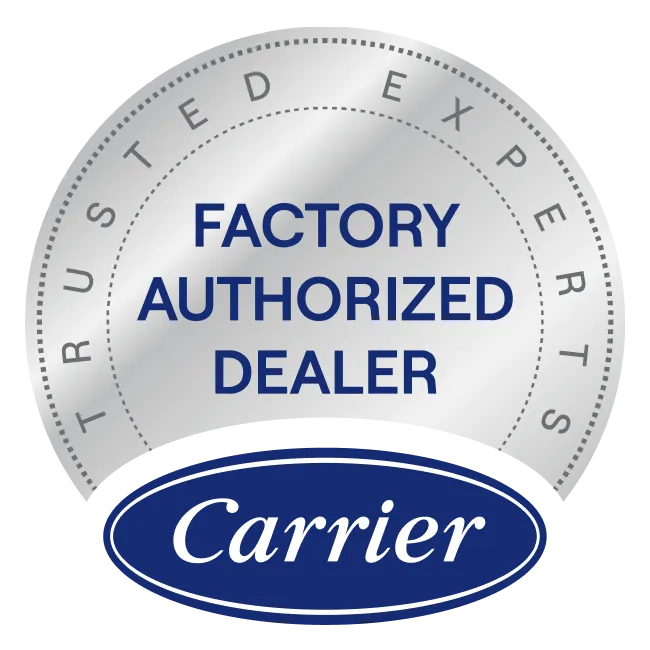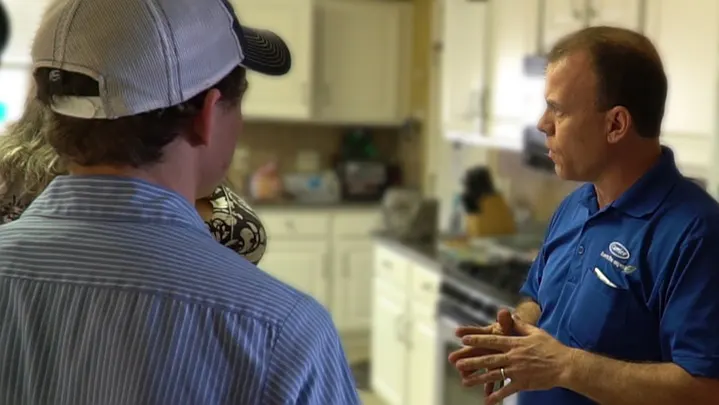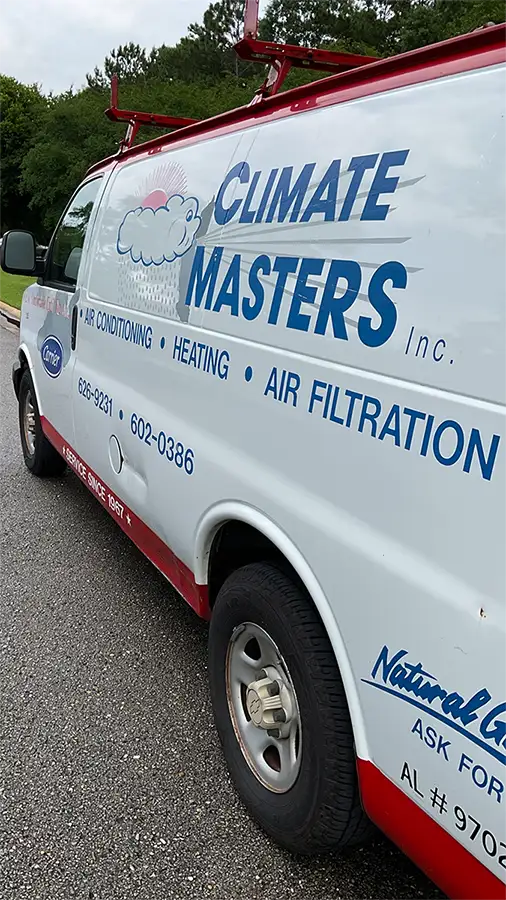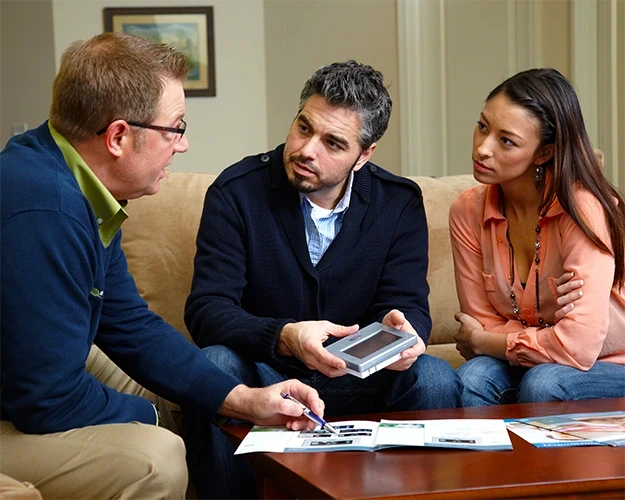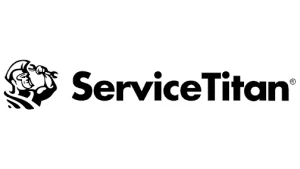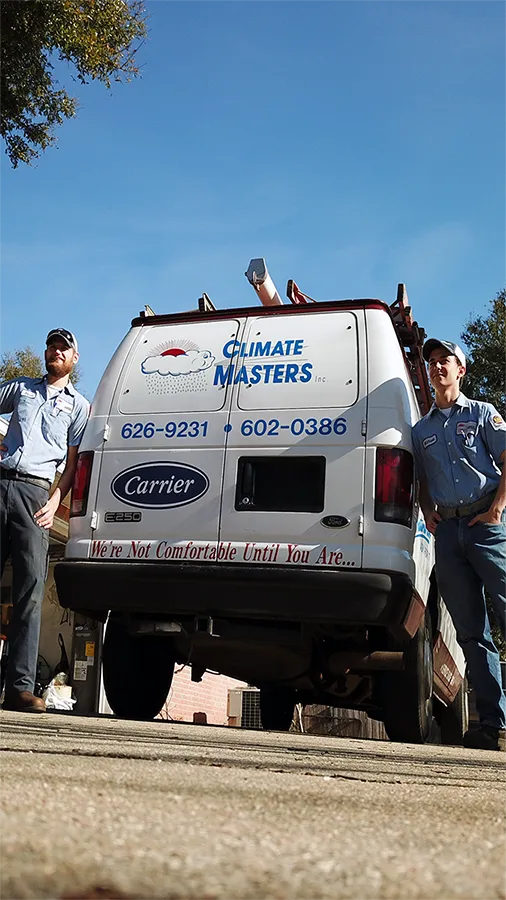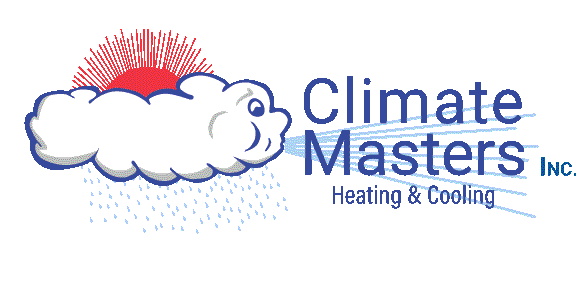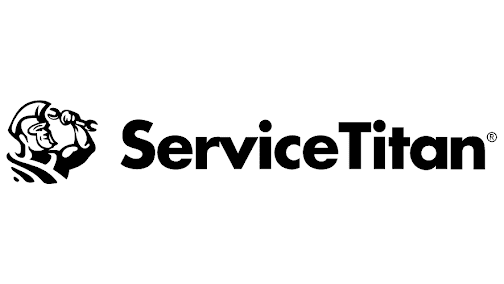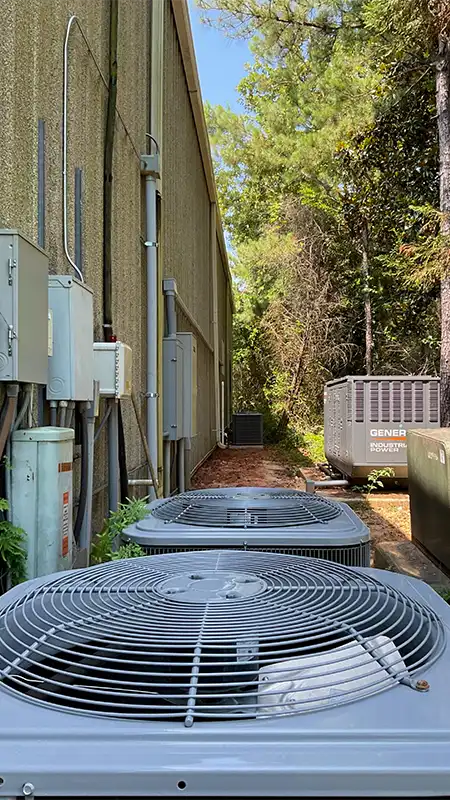
11 Tips For Hiring HVAC Contractors Near Me (continued)
4. Make a List of Problem Areas in Your Home
If you’re looking to repair or replace an existing HVAC system, be sure to note any air flow issues, hot spots, leaking vents, etc. so that your contractor can more accurately assess the situation. This will speed up inspection times, equipment assessment and aid in designing the perfect system for your home.
You’ll also want to inspect any ductwork that needs repair or replacement. Make sure you note any holes, compression fittings, improper connections, as well as any dents or dirt buildup in the vents. This will prevent future problems and help ensure your system remains efficient and long-lasting.
5. Look for an HVAC Contractor Who Can Provide Financing Opportunities
Replacing, even repairing, your home’s air conditioning and heating system can be a financially daunting thought, and it’s something to consider when hiring your HVAC contractor. Oftentimes, a well-established residential HVAC contractor will be a factory-authorized dealer for a major air conditioning manufacturer. These manufacturers will almost certainly have great financing offers to cover equipment and installation costs. In addition, many dealers offer flexible financing options to help manage the expenses of owning a system. This can greatly ease the burden of upfront costs and make the transition smoother for homeowners.
6. Find Out Whether Your Power Company Offers Financing and Rebates to Improve Your Home’s Energy Efficiency
Many states have local utilities looking to incentivize their home-owning customers to weatherize and improve their home’s heating and cooling system. In our neck of the woods, Alabama Power is offering Smart Financing for new systems and repairs installed by the most reputable local HVAC contractors. Exploring these options can uncover valuable rebates and financing plans that reduce overall costs and encourage energy-efficient home upgrades.
7. Anticipate a Thorough Home Inspection
The best residential contractors will spend a decent amount of time inspecting every portion of your home’s heating and air conditioning system, including its ventilation and ductwork, in order to assess the best fitting system for your home in regard to a multitude of factors. Make sure the inspection team is able to access your system in its entirety. If any component of the system is hidden, inaccessible or in need of repair, they may be unable to produce an accurate estimate.
The inspector should also test the air ducts for leakage and check the insulation levels on all exterior walls. This will help determine if your home’s seal is adequate enough to properly regulate indoor temperature through heating and cooling seasons.
8. Get Written, Itemized Estimates
Reputable HVAC companies will provide you with a detailed, printed (or handwritten) estimate for your new system with itemized costs. Bear in mind that the lowest overall estimate may not be the most cost-effective solution for your home. A lower initial cost for a wildly less efficient, undersized HVAC system is going to cost you vastly more in monthly energy bills, maintenance costs, and comfort over the course of its lifetime. Make sure all the estimates you get are from reputable companies that can provide a quality installation and any necessary follow-up service.
9. Consider booking appointments with several dealers. Getting different quotes and perspectives from multiple experts can help you discover the best solution for you. Not only will this give you a range of pricing to consider, but it will also expose you to various system options and installation methods. By comparing these quotes, you ensure that you are making a well-informed decision.
Here’s a quick guide to help you through the process:
- Schedule Multiple Consultations: Aim to meet with at least three different HVAC dealers.
- Compare Itemized Estimates: Look for detailed breakdowns to understand what each quote includes.
- Evaluate Expertise and Services: Pay attention to the expertise of each dealer and the services they offer, such as warranties and maintenance plans.
Ultimately, the goal is to find a balance between cost, quality, and efficiency. By taking the time to gather and compare multiple quotes, you can confidently choose the best HVAC system for your home.
In addition to the costs for new equipment, there may be additional expenses related to the installation of your system. These include the removal of old units, ductwork changes, electrical wiring, and permits. Be sure to ask about these costs upfront and include them in your estimates.
10. Make Sure Everything’s Signed in Ink
Prior to your HVAC contractor starting work, make sure you’ve signed a written proposal that denotes project costs, model numbers, and warranty information. Having everything written down in ink ensures that you are both on the same page and can serve as a reference point if ever needed. Don’t be afraid to ask questions and get clarification before signing anything, so that you have a full understanding of the services being provided.
11. Word-of-Mouth for a Great Experience
After the job’s complete, be sure to leave reviews and feedback for your HVAC contractor, especially if you had a positive experience. Leaving comments on Google reviews, and HVAC listing sites like Angie’s List and the Better Business Bureau, help people like you find the best air conditioning contractors.
More Tips and FAQs for Customers looking for local HVAC Contractors
Question: What are some important questions to an HVAC dealer before purchasing a system?
Important Questions to Ask an HVAC Dealer Before Purchasing a System
When you’re in the market for a new HVAC system, it’s crucial to have an informed discussion with your dealer. Here are some pivotal questions to guide you through the process:
Understand Your Needs
Before diving into the technicalities, assess what you require from an HVAC system. Consider the climate of your area, the current condition of your ductwork, and your energy consumption patterns. This will set the stage for more targeted inquiries with the dealer.
Key Questions to Ask
- Optimal Solutions: What are the best options for heating and cooling my home given its size and layout?
- System Sizing: How do I determine the appropriate size for my HVAC system to ensure efficiency without overspending?
- Repair or Replace: Is it more cost-effective to repair my current system or to opt for a new one, considering potential energy savings and maintenance costs?
- Energy Efficiency: How can I minimize energy usage and reduce my monthly utility bills? Are there systems with higher SEER or AFUE ratings that you recommend?
- Financial Considerations: Do you offer financing options, and are there any discounts or rebates that I could take advantage of?
- Warranty Details: What kinds of warranties are available for your air conditioners and furnaces? How do they compare with third-party warranties?
- Maintenance Plans: Can you provide information on seasonal maintenance plans? Are they included in the purchase, or do they come at an additional cost?
- DIY Maintenance: Are there routine maintenance tasks I can perform myself to keep the system in good working condition?
Choosing the Right Dealer
Selecting a dealer is just as important as choosing the right system. Compare dealers based on their specialties, customer ratings, and reviews. You can use online resources to locate potential dealers or seek recommendations from friends and family.
Get Multiple Perspectives
Consider making appointments with several dealers. By gathering a range of quotes and professional insights, you ensure that you’re selecting the best solution tailored to your needs.
By being well-prepared with these questions, you’ll be able to make a more informed decision, ensuring comfort and efficiency in your home for years to come.
Question: What advice can HVAC dealers provide about energy efficiency?
Expert Advice for HVAC Energy Efficiency
Energy efficiency is a critical aspect of modern HVAC systems, and there are several strategies to enhance it. Here’s an in-depth look at the advice HVAC dealers can provide:
Regular Maintenance
- Routine Check-ups: Schedule professional inspections at least twice a year.
- Filter Changes: Replace or clean filters every 1-3 months to ensure optimal airflow.
- Duct Inspection: Look for leaks or obstructed pathways to maintain efficiency.
Smart Thermostat Installation
- Programmable Thermostats: Installing a programmable thermostat can help manage energy usage effectively by adjusting temperatures during different times of the day.
- Learning Thermostats: More advanced options like smart thermostats from brands such as Nest and Ecobee learn your schedule and optimize energy use automatically.
Sealing and Insulation
- Proper Sealing: Ensuring that windows and doors are properly sealed to prevent air leaks can significantly reduce energy consumption.
- Insulation Upgrades: Adequate insulation in attics and walls helps maintain a consistent indoor temperature, reducing strain on HVAC systems.
Energy-Efficient Equipment
- High SEER Ratings: Encourage customers to invest in HVAC units with high Seasonal Energy Efficiency Ratio (SEER) ratings.
- Variable Speed Technology: Systems with variable speed air handlers and compressors adjust power according to demand, using less energy.
Energy Audits
- Professional Audits: Recommend that customers have a professional energy audit to identify specific areas for improvement.
- DIY Checks: Simple steps like checking for drafts or feeling for temperature variations can make a big difference.
By following these tips, HVAC dealers can help clients optimize their energy use, potentially lowering their utility bills and reducing their environmental impact. Implementing these strategies not only enhances efficiency but also promotes a longer lifespan for the equipment.
Question: What should I consider and prepare before visiting an HVAC Dealer?
When it comes to visiting an HVAC dealer, thorough preparation ensures you get the best system suited to your needs. Here’s a comprehensive guide to help you navigate the process effectively.
Assess Your Requirements
Before your visit, take some time to evaluate your home and specific needs:
- Home Comfort Levels: Think about your comfort preferences in various seasons.
- Climate Conditions: Understand how local weather patterns affect your heating and cooling needs.
- Ductwork: Check the condition of your current ductwork. Is it efficient and well-maintained?
- Energy Consumption: Look at your current energy usage to identify areas for improvement.
- Budget: Determine your desired monthly heating and cooling costs.
Prepare Relevant Questions
Bring a list of targeted questions to your dealer visit to ensure you cover all bases:
- What’s the best way to heat and cool my home?
- What size HVAC system is suitable for my home?
- Should I repair or replace my current system?
- How can I reduce my energy usage and associated costs?
- Do you offer any special financing, discounts, or rebates?
- What’s the warranty on your systems?
- Do you provide a seasonal maintenance plan?
- Is there regular maintenance I should perform myself?
Research Dealers
Not all dealers are created equal. Comparison shopping is essential:
- Specialties: Different dealers have different areas of expertise.
- Ratings and Reviews: Look at online reviews and ratings to gauge customer satisfaction.
- Recommendations: Ask family and friends for dealer suggestions.
Use third-party resources such as consumer protection sites or forums to gather unbiased recommendations.
Multiple Quotes
Consider booking appointments with several dealers. Obtaining different quotes and opinions from multiple experts can provide a broader perspective and help you find the best solution.
Final Preparations
- Documentation: Bring any relevant documents, including past maintenance records or energy bills.
- Flexibility: Be open to suggestions and ready to compare different options.
- Scheduling: Schedule your appointments at a time when you can be thorough and undistracted.
By taking these steps, you’ll be well-prepared to make an informed decision and select the best HVAC system for your home.
Question: What are the benefits of using a certified HVAC dealer?
The Benefits of Choosing a Certified HVAC Dealer
When it comes to your home’s comfort, working with a certified HVAC dealer can make all the difference. Here’s why selecting a certified expert is a savvy choice:
Expertise You Can Trust
Certified dealers often hold prestigious certifications such as the North American Technician Excellence (NATE), considered the gold standard in HVAC proficiency. This independent accreditation ensures that dealers have passed rigorous tests, confirming their knowledge and experience. With certified professionals, you can expect proper installations that save you both time and money in the long run.
Commitment to Customer Satisfaction
Many certified dealers have their own badges or certifications that signify their dedication to quality service and customer care. These specialists are not only adept at servicing and maintaining HVAC systems but are also committed to ensuring that you have a positive experience from start to finish. Their goal is to provide top-notch service, enhancing your comfort and convenience.
Proactive Problem Solving
Some certified dealers offer advanced diagnostics capabilities, enabling them to monitor your HVAC system’s performance. By sharing system data, these dealers can identify potential issues before they escalate into costly emergencies. This feature allows for quick, contactless support and efficient remote troubleshooting, ensuring your system runs smoothly without interruption.
In summary, using a certified HVAC dealer means relying on professionals who are thoroughly trained, customer-focused, and equipped with cutting-edge tools to prevent problems before they occur. It’s a decision that promises peace of mind and optimal comfort in your home.
Question: What regular maintenance services are available for furnaces, heat pumps, and air conditioners?
When considering regular maintenance for your heating and cooling systems, a variety of services can keep your appliances in optimal condition. For furnaces, routine tasks typically involve inspecting and cleaning the burners, checking thermostat functionality, and ensuring the heat exchanger is in good shape.
Heat pumps require similar attention, with services focused on checking the refrigerant levels, cleaning the coils for efficiency, and inspecting the electrical components for safety.
As for air conditioners, routine maintenance often involves replacing or cleaning the filters, checking the condenser and evaporator coils, and verifying the overall system performance.
These proactive measures ensure that your systems run efficiently and help extend their lifespan while reducing energy costs. Regular check-ups by qualified technicians are recommended to maintain comfort and safety throughout the year.



